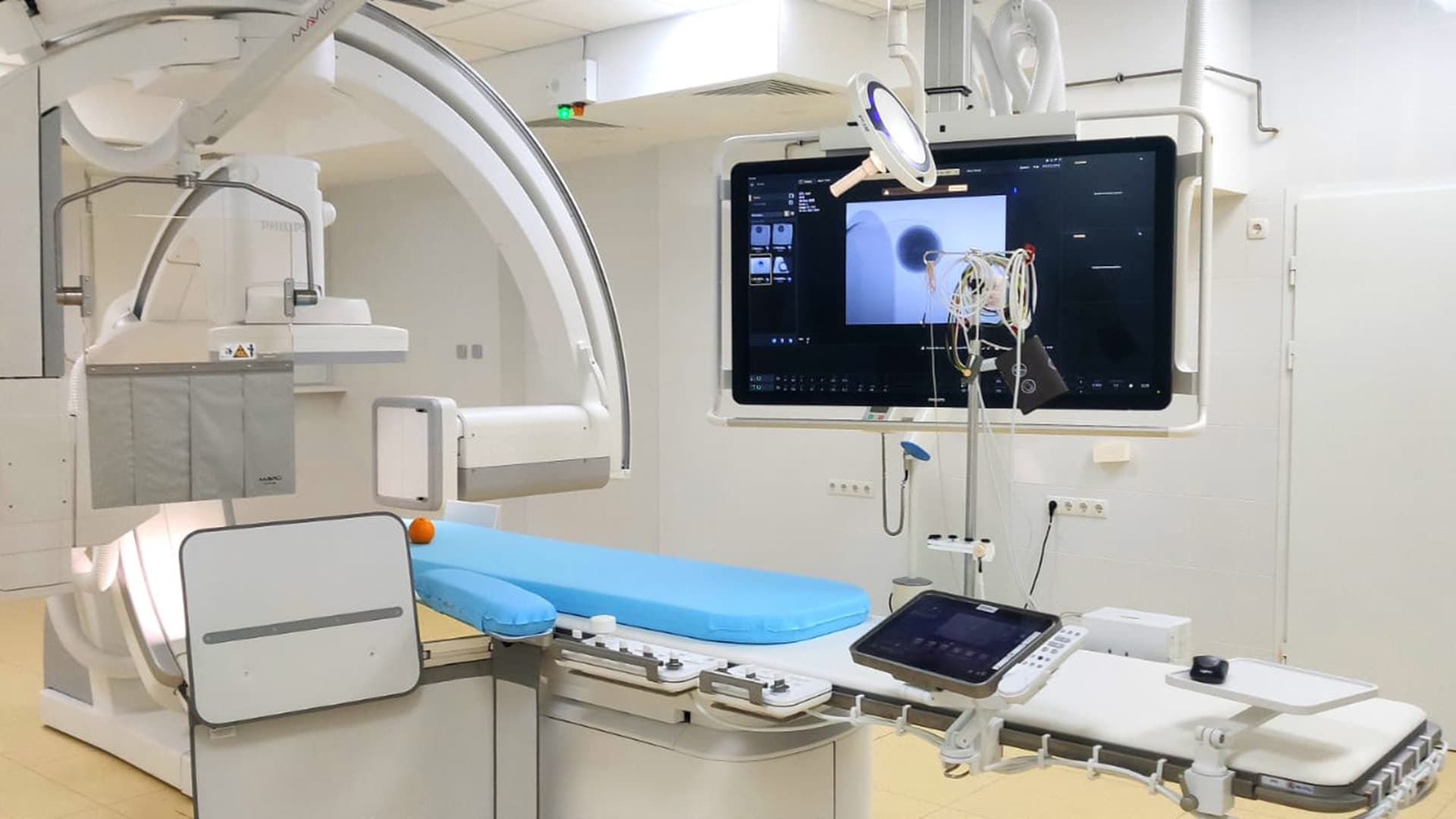Royal Philips (NYSE: PHG, AEX: PHIA), a global leader in health technology, has announced the launch of the RADIQAL (Radiation Dose and Image Quality Trial) study. This multicenter, randomized trial will enroll 824 coronary artery disease patients across six hospitals in Spain, Czech Republic, Denmark, and the US. The primary objective of the RADIQAL trial is to demonstrate that Philips’ new ultra-low X-ray dose technology can reduce overall patient radiation dose without affecting coronary procedure performance.
Coronary artery disease (CAD) is a prevalent heart condition affecting millions worldwide, caused by chronic inflammation of the coronary arteries, which may lead to obstruction or occlusion of blood flow to the heart muscle. Percutaneous coronary intervention (PCI) is a widely used, minimally invasive procedure to open blocked coronary arteries and treat CAD. Philips Azurion, an image-guided therapy system, is used for live X-ray imaging during such procedures.
Key Details of the RADIQAL Trial
- Prospective, randomized, unblinded, comparative, international, multi-center clinical investigation
- 824 patients across 6 hospitals in Spain, Czech Republic, Denmark, and the US
- Primary objective: to demonstrate reduced radiation dose without affecting procedure performance
Quotes from Experts
“The ability to reduce radiation exposure without compromising procedural performance is a key priority in interventional cardiology,” said Dr. Javier Escaned, Professor of Cardiology at Hospital Clínico San Carlos and principal investigator. “RADIQAL is designed to generate robust, real-world evidence on whether Philips’ new ultra-low X-ray dose technology can reduce radiation exposure for patients and staff without affecting the quality of coronary procedures.”
Dr. Darshan Doshi, Head of Medical & Clinical at Philips Image-Guided Therapy Devices and Interventional Cardiologist at Massachusetts General Hospital, added, “Reducing radiation exposure while maintaining or improving image-quality is one of the most important innovation goals in interventional cardiology.”
Technology and Significance
The new ultra-low dose technology features a protocol that reduces X-ray exposure by 50% compared to the lowest setting currently available on Philips Azurion systems with ClarityIQ technology. This technology has obtained CE marking under the EU MDR regulatory framework. The RADIQAL trial evaluates radiation exposure, image quality, and procedural performance between Philips’ new technology and existing ClarityIQ technology, both integrated into the Azurion image-guided therapy system.




